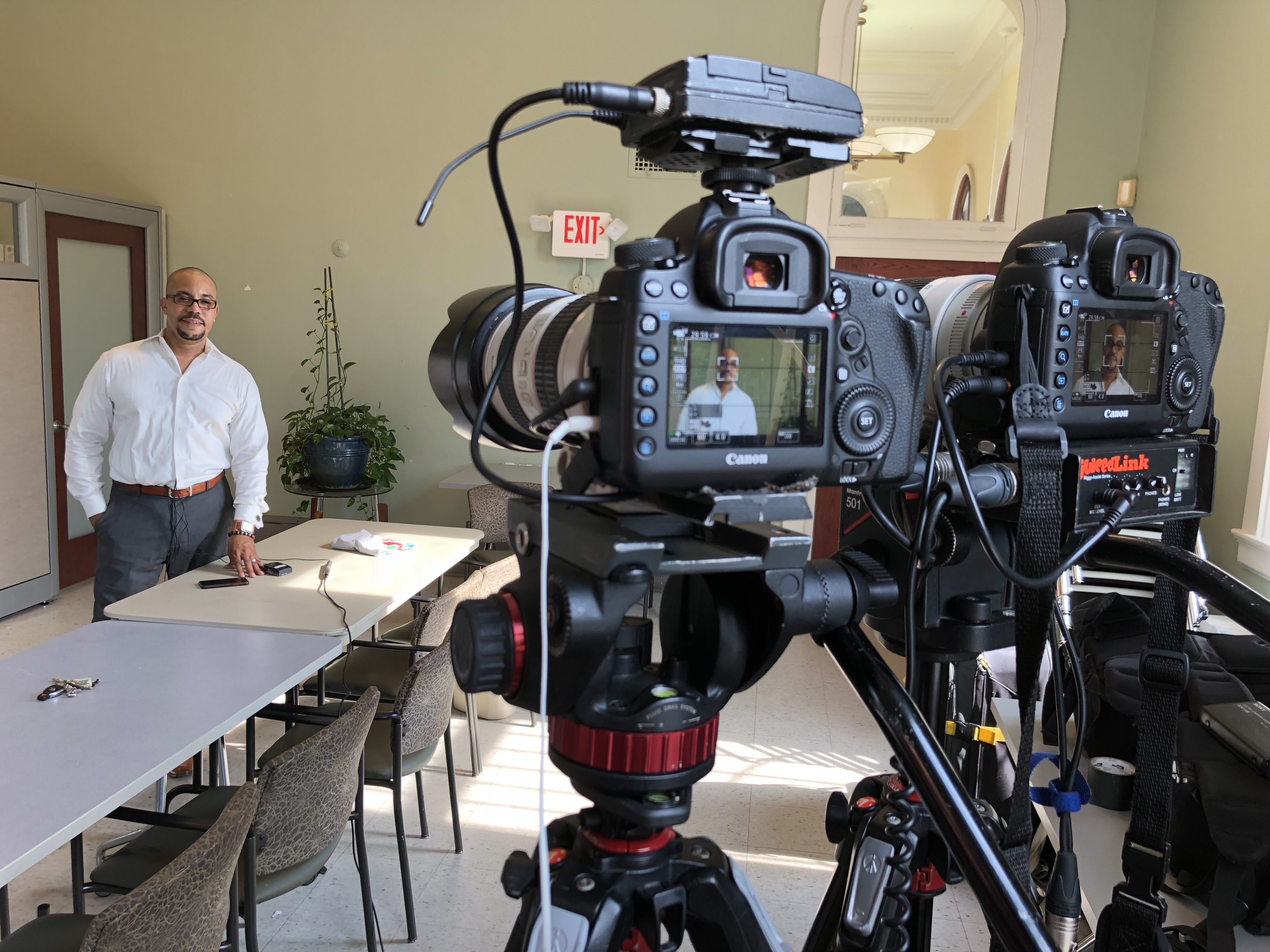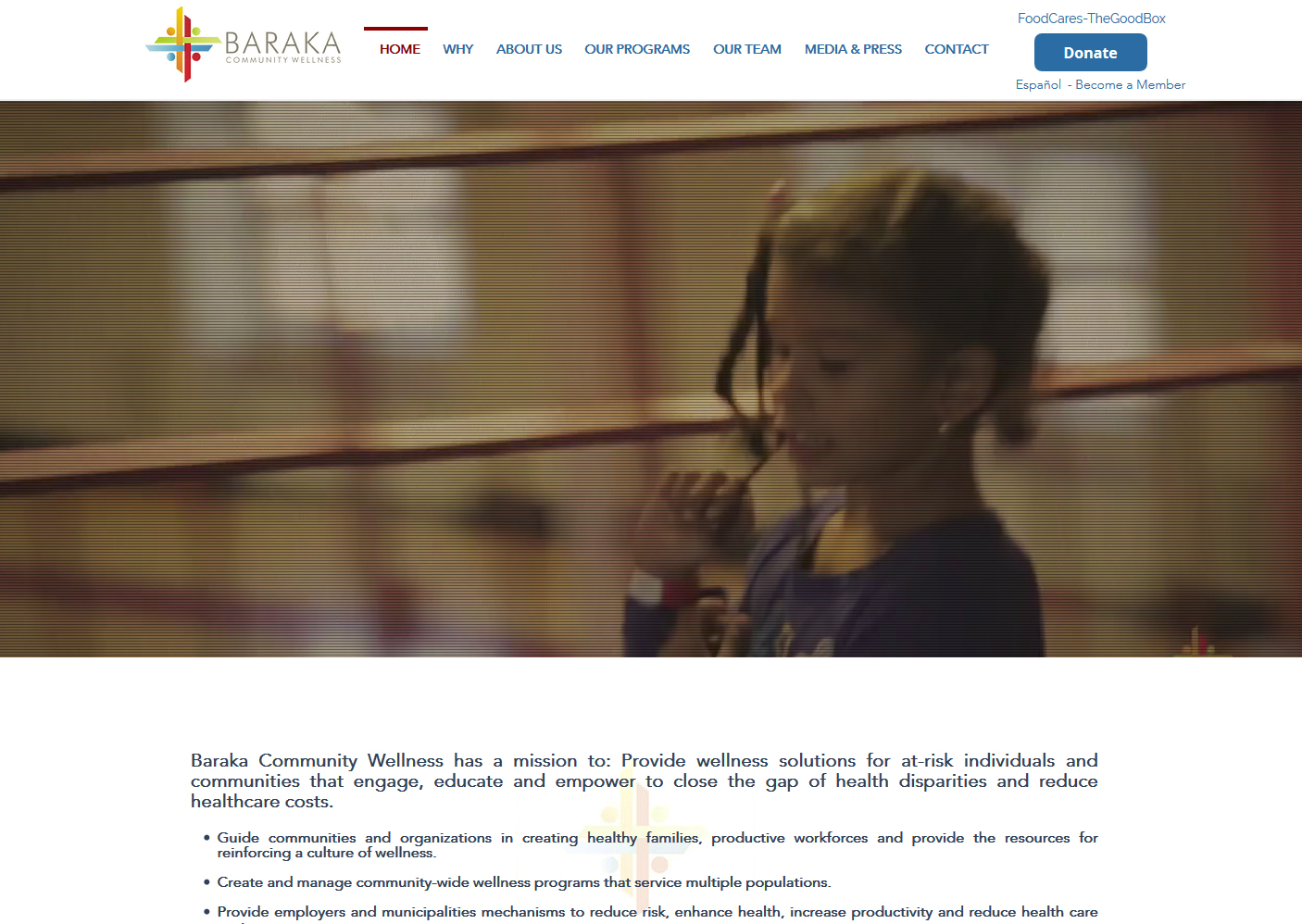Share On Social!
Raheem J. Baraka grew up seeing health inequity all around him in Boston (19% Latino).
He saw people in one low-income neighborhood suffer more disease, less access to health care, and live 33 years less than people in a wealthy area just 2.7 miles away. He saw doctors treating illnesses, not addressing prevention or social determinants of health.
He was fed up.
So Baraka started Baraka Community Wellness.
The nonprofit group makes health a civil rights issue by creating programs to address health equity and the social determinants of health, such as the unique “Healthy Moms, Healthy Kids” program to connect single moms to access to healthy eating, physical activity, and social support from financial aid to housing advocacy.
“I truly have a disdain for disparity and inequity. Injustice and systemic challenges related to race and class are driving many problems in health care today. Work on upstream solutions that impact communities towards positive outcomes downstream is the smart, moral, and right thing to do,” Baraka said.
The Impetus for Wellness for Vulnerable Populations
Many U.S. Latino families suffer a big lack of access to support for economic and educational success, and quality healthcare. This makes it harder for Latino kids to achieve academically, socially, and physically, according to a Salud America! research review.

Baraka witnessed much of the same in Boston.
In his previous job as fitness director for the Massachusetts General Hospital’s Community Health Centers, Baraka developed and implemented health promotion and community engagement activities and interventions.
He often saw Latinos and Blacks struggle to access quality healthcare. Few received preventive services or social support.
“The challenges in Boston are no different than the others facing the rest of the country” Baraka told Salud America!. “There are major disparities and inequities in regards to healthcare, and not only healthcare, but outcomes concerning health status.”
The Launch of Baraka Community Wellness
Baraka started Baraka Community Wellness in 2013.
The nonprofit designs and manages comprehensive integrated evidence-based wellness solutions for the community, healthcare agencies, other nonprofit organizations, and municipalities.
Their methodology is:
- Guide communities and organizations in creating healthy families, productive work forces. Provide resources for reinforcing a culture of wellness.
- Create and manage community-wide wellness programs that serve multiple populations.
- Provide employers and municipalities mechanisms to reduce risk, enhance health, increase productivity and reduce healthcare costs.
- Contribute to the health care sector’s and societal shift toward wellness promotion and disease prevention globally.
“The overall mission of Baraka Community Wellness is to close the gap of health disparities and reduce healthcare costs … and ensure there is equity in regards to health outcomes for low-income communities,” according to its website.
To achieve its bold mission, Baraka Community Wellness needed to reach the community.
Baraka knew who he wanted to reach first: single mothers.
Healthy Moms Healthy Kids
Healthy Moms Healthy Kids is the original program of the Baraka Community Wellness initiative.
Healthy Moms Healthy Kids started as a family wellness program to address the needs of access for single mothers living in low-income areas who had no access to positive lifestyle and behavior models, or access to healthy food options. The program includes health coaching, physical fitness and nutrition with cooking demonstration.
It evolved to add social support tools, such as financial assistance referrals, housing advocacy, and enhanced food access.
In three years, the program has distributed:
- 467 hours of nutrition classes, two days a week.
- 482 hours of fitness classes.
These nutrition and fitness classes contributed to positive health outcomes including:
- A cumulative 987 pounds lost among participants.
- After Year 1, two participants came off of lifestyle/chronic disease medicine. Their doctors attributed their success to the program.
- By Year 3, 18 participants were off their lifestyle/chronic disease medication.
Baraka describes Healthy Moms Healthy Kids as high-touch, high-value, and low-cost. Plus it’s highly replicable in other communities in need.
“You have such an ROI to health outcomes being improved in such a very short time,” Baraka told Salud America!.
More Beneficial Programs
Eventually they started more programs to address lifestyle and behavior, food access and food insecurity, education, and safe/healthy environments to improve health outcomes for the most vulnerable populations.
- FoodCaresBOSTON provides access to free fresh healthy food, educational resources and programming for families and children within public housing and low-income communities experiencing food insecurity.
- Community Cooking Academy is a hands-on culinary instructional experience designed to provide at-risk patients of healthcare systems enhanced food access, nutrition education, bulk cooking technical skills and the tools to extend grocery purchases to create healthy wholesome meals for the entire family
- W.e.FIT Women’s Empowerment Fitness is a comprehensive weight loss and health coaching program that focuses on weight reduction through exercise, nutrition education, and group health coaching to help identify barriers to healthy lifestyles.
Baraka Community Wellness also partners with other groups’ programs.
For example, they also collaborate with another group on “Spanish Grandparents Raising Grandchildren.” The program connects grandparents who are raising their grandchildren with each other and a variety of community resources, information, and activities to support and strengthen the family.
“I want to improve the health outcomes of the community that I grew up in. And I wanted to improve the health of the community at large,” Baraka told Salud America!. “I mean, all this has to with an equity issue.”
“When you look at affluent communities outside their outskirts of Boston there’s a different value set by their municipalities and by what’s happening, and the health outcomes of those individuals.”
Editor’s note: Raheem J. Baraka passed away unexpectedly in September 2018. Baraka was loving husband, father of three, and community leader devoted to ending health disparities facing communities of color. Donations for the Baraka family are being accepted. If you’d like to donate to Baraka Community Wellness, please contact Erika Bardouille at e.d.bardouille@gmail.com or (617) 637-7742.
Explore More:
Healthcare AccessBy The Numbers
142
Percent
Expected rise in Latino cancer cases in coming years
This success story was produced by Salud America! with support from the Robert Wood Johnson Foundation.
The stories are intended for educational and informative purposes. References to specific policymakers, individuals, schools, policies, or companies have been included solely to advance these purposes and do not constitute an endorsement, sponsorship, or recommendation. Stories are based on and told by real community members and are the opinions and views of the individuals whose stories are told. Organization and activities described were not supported by Salud America! or the Robert Wood Johnson Foundation and do not necessarily represent the views of Salud America! or the Robert Wood Johnson Foundation.




